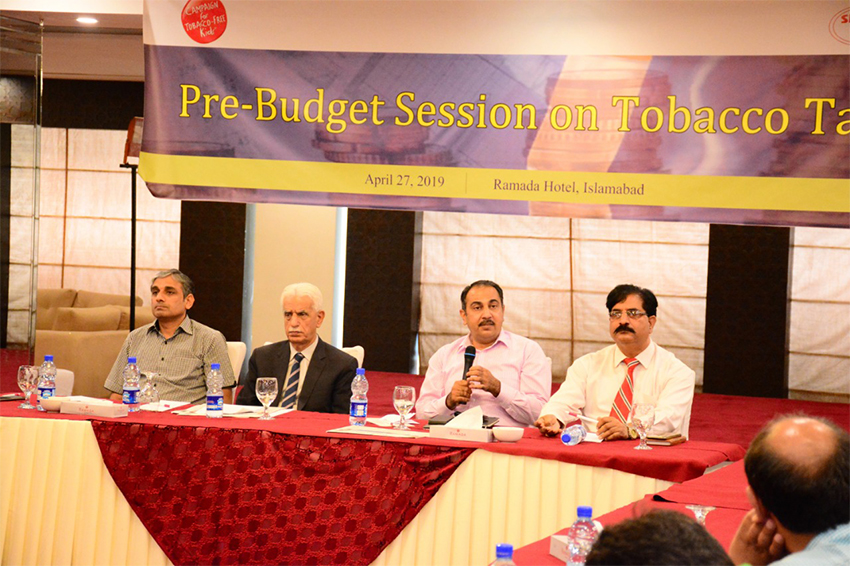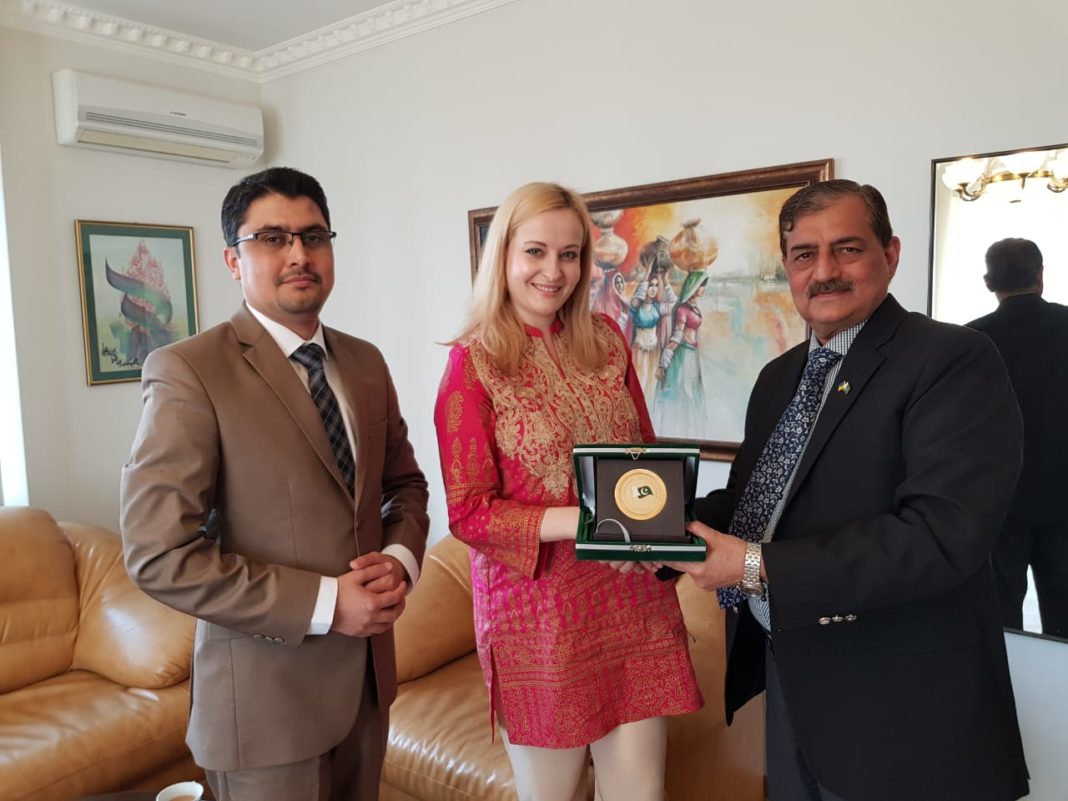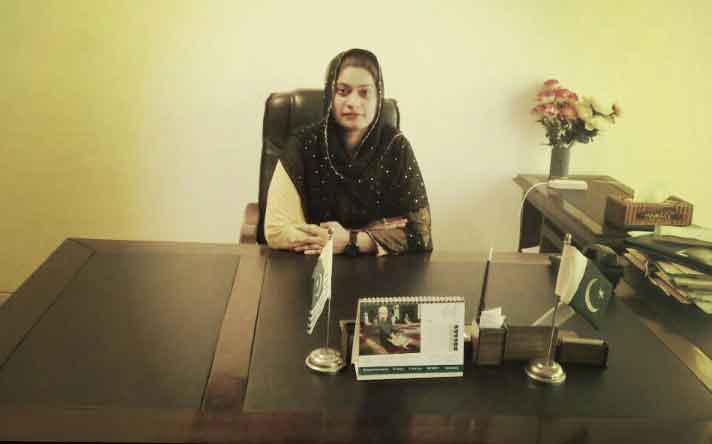Islamabad, 27 April, 2019: Society for the Protection of the Rights of the Child (SPARC) organized a Pre-budget session on tobacco tax in Islamabad today (Saturday).
Mr. Malik Imran from Campaign for Tobacco Free Kids, Pakistan office shared a concrete proposal for tobacco tax reforms and recommend solutions to the federal government on short term (Fiscal Years 2019/20):, medium term (FY 2020/21) and long term basis (FY 2021/22). According to the calculations it is predicted that the tax reform would generate significant additional total tax revenue of about PKR 205.9 billion over 3 year, equivalent to an average annual increase in total tax revenue of about 51% (or about PKR 32.3 billion per year). He also anticipate an increase in the excise tax share in the price from about 45.9% currently to 57.6%, somewhat closer to the 70% level recommended by the World Health Organization.
Sharing the proposed model, Mr. Malik Imran from Campaign for Tobacco Free Kids, Pakistan office said that the tax reform model will also contribute to significant reduction in adult cigarette consumption by almost 42% (about 28 billion sticks); reduced smoking prevalence by about 2.15 p.p. , from 10.4% of all adults currently to about 8.3% of adults after 3 years, and reduction the number of smoking-related deaths among current and future smokers by about 11% which is a reduction of about 1.1 million.
He also added that the volume of illicit trade is very low as claimed by the tobacco industry and the data presented to the government by the industry is also challengeable.
Sajjad Ahmad Cheema Executive Director, SPARC said Big Tobacco Industry caused a whopping 153 Billion Rupees loss to the National exchequer between 2016-19, by being awarded low tax rate and adjusting the prices of their most sold brands. Almost 90% of all brands consumed in Pakistan were taxed as “low” tiers under the previous tax system (FY 2016-17). If their prices had remained the same, most would have automatically been reclassified as “medium” (89% of them). However, we find that Big Tobacco companies made deliberate adjustments in prices resulted in a significant price reduction, causing in 88% of the market being taxed at the new lowest rate in the current tax system. After the introduction of third tier, around 160 Billion cigarettes were produced between May, 2017 to March; 2019. Big tobacco companies share 75% of the total market, which means they were able to sell 120 billion cigarettes in the same period. Loss of Revenue due to introduction of 3rd Tier (low tobacco taxes) is 77.85 billion rupees from 2016 to 2019. Loss of Revenue due to Price Adjustments is 75 billion rupees from 2018 to 2019.
Javed Siddique resident editor Daily Nawa-i-Waqt Islamabad while sharing his views said that media can play pivotal role to aware people about the disastrous affects of tobacco on our health. He showed his deep concern over the loses to our national exchequer by tobacco industry. He committed to highlight the pressing issue through media.
The speakers expressed confidence that recommendation for tobacco tax reform, if adopted by the government will prove to be an effective policy that will simplify Pakistan’s tobacco tax system, thus reduce government’s administrative costs (improve enforcement and compliance) and further align it with best global practices. Furthermore, the proposal can significantly reduce tobacco use and save lives while raising significant additional tax revenue that can fund government health programs, including tobacco control programs.








